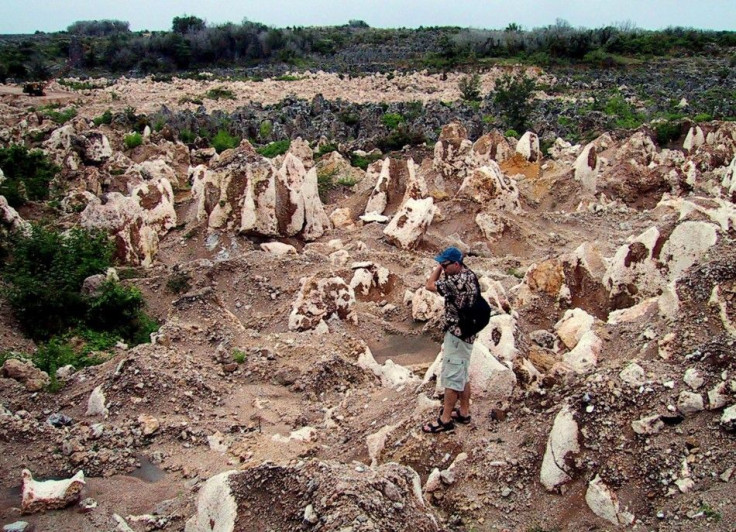Nauru: A Riches-to-Rags Story

Nauru, the world's smallest island nation, used to be its richest. But now 90% of its inhabitants are unemployed.
The tiny island in the South Pacific will chair the U.N. Alliance of Small Island States, whose current priority issue is addressing the devastating threats faced by island and low-lying coastal countries from the effects of global climate change.
Today, CNN published iReporter (and founding Black Crowes member) Johnny Colt's journal of his November trip to Nauru. CNN became curious about the country's story when it was the last to respond to The iReport Global Challenge. (Also, many at the news organization had not previously heard of Nauru).
Colt witnessed the prolonged decay Nauru has experienced after exhausting its phosphate deposits, the country's only wealth export and only meaningful natural resource:
The phosphate mines, before they dried up, gave the nation the second-highest per-capita GDP in the world. But today, 90% of its residents are unemployed and the nation's economy sags under enormous debt. The phosphate mineral money that brought Ferraris to the island in the 1970s and '80s has dried up, leaving all those sports cars to rust. Today, most Nauruans live on about 90 to 100 Australian dollars a week....The entire place is literally crumbling. Imagine if no one had repaired anything around your home since the early 1980s .
Colt described Nauru as one of the strangest and most troubled places on Earth:
This country is a front-runner for the problems that all nations are facing. It's staring down environmental and economic disasters and a health crisis, and it has a front-row seat for global warming.
Read the full story on CNN.
[Source: The Atlantic]
© Copyright IBTimes 2025. All rights reserved.






















